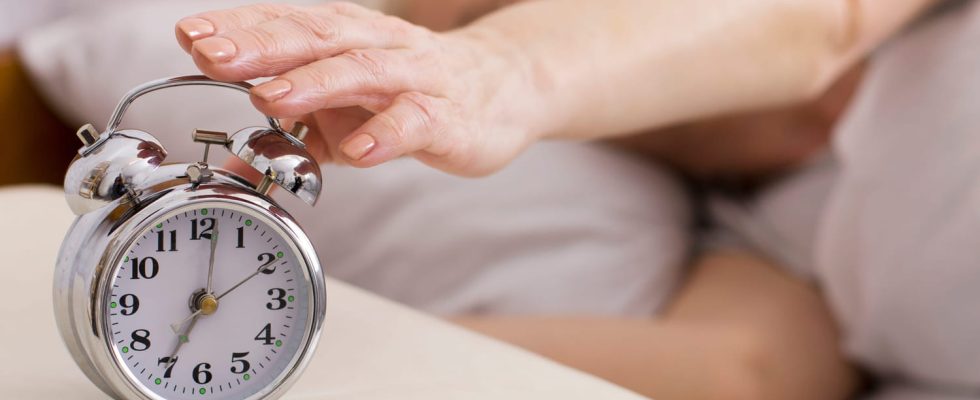It’s a fact, the older we get, the earlier we get up, a neurologist explains why.
It’s not a cliché, young people are fans of sleeping in and older people get up at dawn. In question, part of genetics but also the natural aging process which impacts our sleep rhythm. As we get older, we actually get up earlier and earlier, but we also go to bed earlier and earlier. The need for sleep naturally decreases with age. “A baby needs 16 hours of sleep, an adolescent needs 9 hours of sleep, a young adult needs between 7 and 8 hours, knowing that there are variations since there are short sleepers who do not only need 7 hours of sleep and long sleepers who need more than 9 hours” reminds us of Dr. Marc Rey, neurologist specializing in sleep, president of the National Institute of Sleep and Vigilance (INSV).
When we are older, there is also a change in sleep: there are fewer differences between the beginning of the night and the end of the night cycles regarding paradoxical sleep. “Another reason why we need less sleep: we have less to learn. However, we know that sleep serves in particular to consolidate what we learn during the day, it is for this reason that it is particularly important in children and adolescents”, argues the sleep neurologist. On the other hand, elderly subjects have greater ease with daytime sleep due to the reduction in activity. “Consequently, they will tend to take a nap more easily in the middle of the day, which will further reduce the duration of nighttime sleep. In much older subjects, in the fourth age, the periods of daytime sleep and the much greater nighttime waking ranges”explains Dr. Marc Rey.
Another reason given by researchers to explain that we wake up earlier and earlier as we age is the lesser reactivity of the brain. He may have more difficulty perceiving signals that help with time, such as daylight, meals, social contacts and physical activity. In other words, if dinner time signals to a younger person that bedtime is fast approaching, this neural connection may not take place in an older person.
Finally, age-related decline in vision would reduce the brain’s perception of brightness, which could complicate time tracking and the circadian clock. This would be particularly true in subjects with cataracts. As less light enters the eyes, the body begins to secrete melatonin, the sleep-inducing hormone, earlier than normal. Result: people tend to fall asleep earlier… and therefore also get up earlier.
Thanks to Dr Marc Rey, neurologist specializing in sleep, president of the National Institute of Sleep and Vigilance (INSV)
